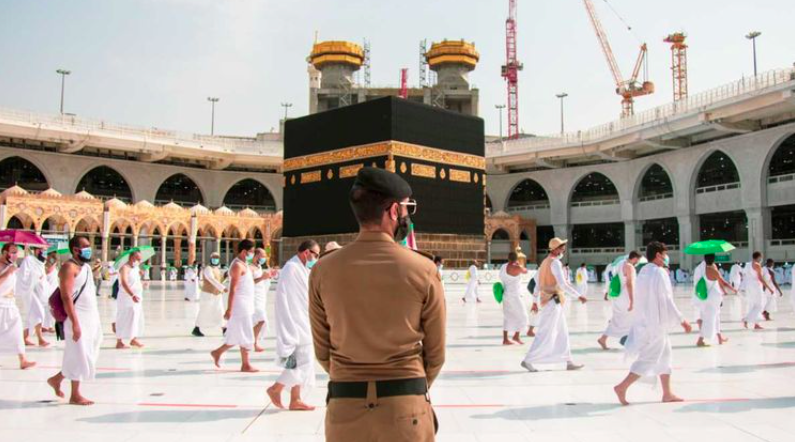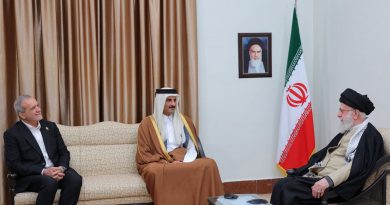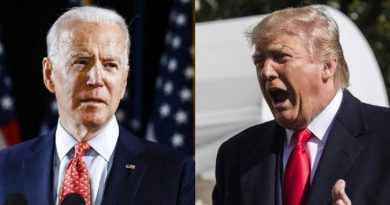HAJJ: Whether it’s a Business or an Obligation for Saudi Arabia?
by Zahack Tanvir and Afreen Baig
There are multiple accounts in history, which are enough to compare the Hajj of the past and the present.
The fifth pillar of Islamic faith—Hajj has always been politicized by the Saudi-critics, and their bone of contention has always been that, ‘Saudi Arabia makes billions through Hajj’ or ‘Makkah is the new Las Vegas’, and ‘Hajj is the new oil for Saudi Arabia’.
However, with the arrival of the pandemic situation in 2020, and the Hajj of 2020 and this year 2021, has silenced the critics.
We have tried to analyze some past facts and figures to figure out if the Saudi government is making humongous wealth through Hajj, or have they been doing it for the sake of honor of serving the pilgrims?
Past Vs. Present
As matter of fact, before Saudi Arabia was officially formed in 1932, the number of pilgrims who would arrive for Hajj would be less than 60,000 which is quite similar to the number of pilgrims who have arrived for the pilgrimage this year.
According to the General Authority for Statistic (GaStat) in 2019, Saudi Arabia received more than 95,853,017 (95.8M) pilgrims over the past 50 years. The number of pilgrims exceeded two million in 19 seasons, and the number of pilgrims during the past 25 years reached 54,465,253 (54.4M), while the number of pilgrims during the last ten years stood at 23,796,977 (23.8M).
Moreover, the Kingdom has planned to host 30 million pilgrims for Hajj and Umrah each year. Which simply means that Makkah never hosted millions of pilgrims the way it has hosted under the leadership of Saudi Arabia.
During the Ottoman-occupation of Makkah, it was extremely difficult for the pilgrims to safely arrive and perform Hajj. In fact, most of them would bid final farewell to their relatives before embarking for the pilgrimage.
It was the custom back then, to host feast and to invite their near and dear ones, and seek their forgiveness before leaving for Hajj, with the constant fear that if they would ever return or not.
The high-way marauders and the pirates would loot them and kill them, and there was no safety and security for the pilgrims.
In 1820s, Muslim scholars of the Indian subcontinent abrogated Hajj due to the difficulties and dangers the journey would pose to the pilgrims. However, Shah Ismail Dehlawi feared that one of the greatest and incumbent pillars of Islam that is Hajj would be eventually forgotten.
In 1821, Shah Ismail hired around 10 ships, and embarked for Hajj with his followers, despite various dangers and threats, and then he returned after two years in 1823.
There are multiple accounts in history, which are enough to compare the Hajj of the past and the present.
Well, one may argue that with technological advancements and with the formation of global communities, the Hajj has become plausibly easy, for which Saudi government has no partnership in credits.
As a matter of fact, while all this was happening, Ottomans were trying to achieve its policies regarding Europe and extending its diplomacy to France, and spent their wealth on lavish palaces and banquet halls in Istanbul, but they least cared for the holy places despite possessing all possible means and contemporary resources. This was one of the reasons for the Arab uprising against the Ottomans.
The comparison of the past and the present will indeed lead us to appreciate the Saudi leadership, and their efforts in ensuring a safe Hajj.
Business Vs. Spending on Hajj Services
Coming back to the subject, all these statistics of millions arriving for Hajj every year, perhaps makes anyone trust the vile propaganda that Saudi government may have been making billions through Hajj.
Let’s analyze some of the facts and figures, which speak otherwise and negate the political propaganda. In fact, it shows that the Kingdom has been spending more on the Hajj services to provide ease and comfort to the pilgrims, than amassing the wealth in the state banks.
In August 2019, when a Saudi-critic from the United Kingdom published an article demanding Muslims to boycott Hajj to bring loss to the Saudi government. MilliChronicle published its refutation Hajj Revenue VS. Statistics—Shutting-up Critics calling for Hajj-Boycott.
There are remarkable services the Saudi government has been providing to the pilgrims. Indeed, the cost of these services outdo the revenue Kingdom generates through Hajj.
Hajj-2018 witnessed services like—25 hospitals, 155 health centers, 5000 hospital beds, 180 ambulances, 30,000 medical and administrative staff, 30 open heart surgeries, 513 cardiac catheterization, 175 endoscopic surgeries, 547 surgical operations, 1594 hemodialysis, and 11 childbirths.
In the same year, over 2,371,675 (2.37M) pilgrims benefited from 19 government entities, 136 public services, 180 hospitals and health centers, 16,000 telecommunication towers, 3074 wifi access points, and there were 287,300 employees from various entities.
Moreover, there were 5947 cameras to ensure the safety of pilgrims, 21 helicopters with 313 flying hours, and 20 medical evacuation services.
Regarding utilities services, 17,791 megawatts of total load of electricity, and 40 million m3 water was consumed.
Similarly, Hajj-2019 witnessed—685 cardiac catheterizations, 29 open heart surgeries, 1948 dialysis procedures, 103 endoscopic operations, and 532 general surgeries. A total of 363,567 patients were treated.
Saudi government dedicated 80 well-equipped large ambulances, and 30,000 doctors and nurses on duty.
There were 350,000 air-conditioned tents, 300,000 Security officers, 32,000 Scouts, 25,000 buses and drivers, 60,000 Engineers, 36,000 toilets, 600 water dispensers, 13,776 telecommunication towers, 5,400 wifi zones, 4000 cleaners equipped with 400 machines deployed for the Grand Makkah Mosque only.
According to a report by Al-Arabiya, the Saudi government has spent more than $100 billion (SR375 billion) to improve pilgrimage facilities.
Conclusion
Saudi King Salman Al-Saud said, “I and my predecessors, my brothers, the sons of King Abdulaziz, are always honored to be custodians of the Two Holy mosques. We and our people are always honored to serve the two holy mosques. Thanks to Allah, our country enjoys security”.
“The Hajj and Umrah pilgrims perform Hajj, and visit Madinah. They travel on long journeys in this vast country. And feel secure and have peace of mind. We ought to thank Allah for this bounty and blessing”, he added.
It is evident from his statements, and the statistics that the Saudi leadership and its people take pride in hosting the pilgrims, rather than making a profit out of the pilgrimage.
Indeed, it is unjust and unfair to accuse the Saudi government based on vile allegations and lies, in order to poison the minds of innocent masses, to achieve ulterior political motives.
Religion and politics should always be deemed as separate entities, when these two are mixed, it results in a deadly combination, which isn’t healthy for nations, individuals, and governments to prosper. Let’s help people perform the holy pilgrimage with peace of mind, and let’s commend the Saudi leadership for its continuous service towards the pilgrims.
Afreen Baig is an independent political analyst on the contemporary issues of Middle-East and the Arab World. She writes for The Milli Chronicle. She can be followed under @afrenebege.
Zahack Tanvir is a Saudi-based Non-Resident Indian. He is an IT Consultant, Computer Engineer, and also holds Dip. in Journalism from London. He is the founder of MilliChronicle. He often writes and tweets against political Islam. He can be followed under @ZahackTanvir.
*NOTE: This article is not sponsored by the Saudi Government or any Individual.



